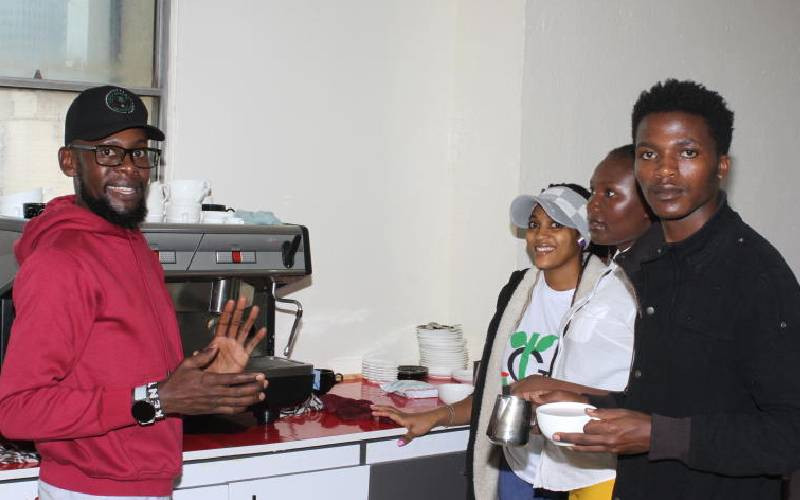×
The Standard e-Paper
Home To Bold Columnists

People who regularly visit the city centre must be familiar with the EcoBank building along Mundi-Mbingu in the heart of Nairobi's central business district (CBD) as it is among the landmarks uptown.
Here, it is not easy to come across a regular eatery but rather mostly admired offices. However, as you alight from the elevator on the Fifth floor, a strong aroma of fresh coffee wafts through your nostrils directing you to the source.